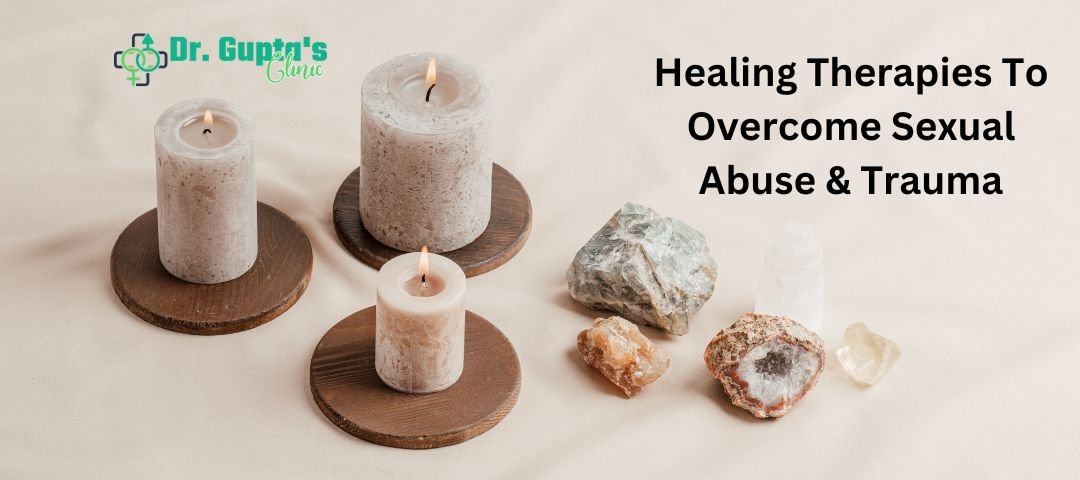Healing from sexual trauma is a journey that can be supported through therapeutic intervention. By seeking the right therapy, survivors can work towards reducing the impact of their trauma and reclaiming their lives.
Importance of Therapy for Healing Sexual Trauma
Sexual trauma is a devastating experience that can have long-lasting effects on a person’s mental, emotional, and physical health. While there is no guaranteed cure for sexual trauma, therapy can be a valuable tool for healing.
Therapy provides a safe and supportive environment for individuals to process their experiences and emotions. A therapist can help a survivor work through feelings of shame, guilt, and self-blame, as well as provide practical strategies for managing symptoms of trauma such as anxiety, depression, and flashbacks.
In addition to addressing the emotional impact of sexual trauma, therapy can also help individuals rebuild their sense of safety and trust. For many survivors, sexual trauma can disrupt their ability to form healthy relationships and engage in intimate experiences. A therapist can help survivors work through these issues, setting them on a path toward a more fulfilling life.
It’s also important to note that therapy can be helpful not only for survivors but also for their partners, friends, and family members. These individuals can also be impacted by sexual trauma, and therapy can provide them with tools for supporting their loved ones, as well as their own emotional well-being.
Different Healing Therapies to Overcome Sexual Trauma
Therapies play a crucial role in the healing journey for survivors of sexual assault or trauma. A variety of therapeutic approaches can be effective in helping individuals overcome the effects of sexual trauma and live fulfilling lives.
Some of the most commonly used therapies for sexual trauma include:
- Cognitive Behavioral Therapy (CBT): CBT is a form of talk therapy that helps individuals change negative thoughts and behaviors that may be impacting their daily lives. In the context of sexual trauma, CBT can help survivors work through their thoughts and feelings about the trauma and help them develop coping skills for managing symptoms such as anxiety, depression, and post-traumatic stress disorder (PTSD).
- Eye Movement Desensitization and Reprocessing (EMDR): EMDR is a form of therapy that uses eye movements and other forms of bilateral stimulation to help individuals process traumatic memories. In the context of sexual trauma, EMDR can help survivors work through their experiences and reduce the emotional intensity of their memories, leading to a reduction in symptoms such as anxiety, depression, and PTSD.
- Trauma-Focused Cognitive Behavioral Therapy (TF-CBT): TF-CBT is a type of therapy that combines elements of CBT and EMDR to help individuals overcome the effects of sexual trauma. This approach helps survivors work through their traumatic experiences and develop coping skills for managing symptoms such as anxiety, depression, and PTSD.
- Group Therapy: Group therapy can provide a supportive environment for survivors of sexual trauma to share their experiences and connect with others who have similar experiences. Group therapy can also help individuals develop healthy coping skills and find strength in their resilience and ability to overcome their experiences.
- Art Therapy: Art therapy is a form of therapy that utilizes creative expression to help individuals process their emotions and experiences. In the context of sexual trauma, art therapy can be a valuable tool for survivors, allowing them to express themselves in a non-verbal way and work through their experiences in a supportive environment.
- Individual Counseling: Individual counseling provides survivors with the opportunity to work one-on-one with a therapist to explore their experiences and develop healthy coping skills. This approach can help survivors process their experiences, develop a deeper understanding of their emotions, and find ways to move forward in their healing journey.
- Somatic Experiencing: Somatic experiencing is a form of therapy that helps individuals work through the physical sensations associated with trauma. This approach can help survivors understand and work through their body’s physical responses to trauma, reducing symptoms such as anxiety, depression, and PTSD.
- Acceptance and Commitment Therapy (ACT): ACT is a type of therapy that helps individuals learn to accept their experiences and emotions without judgment. In the context of sexual trauma, ACT can help survivors develop a more positive relationship with their experiences and emotions, reducing symptoms such as anxiety, depression, and PTSD.
- Mindfulness-Based Therapies: Mindfulness-based therapies such as mindfulness-based stress reduction (MBSR) and mindfulness-based cognitive therapy (MBCT) help individuals develop mindfulness and reduce stress. In the context of sexual trauma, mindfulness-based therapies can help survivors reduce symptoms of anxiety and PTSD and develop healthy coping skills for managing their experiences.
Each of these therapies offers different approaches to overcoming the effects of sexual trauma. However, it is important to remember that the therapeutic approach that is most effective for one individual may not be the same for another. It is important for survivors to find a therapeutic approach that works best for them and to work with their therapist to develop a plan that addresses their unique needs and experiences.
Self-care Activities To Overcome Sexual Trauma
Self-care is an essential aspect of healing from sexual abuse and trauma. It can help individuals feel more in control of their lives, reduce symptoms of depression and anxiety due to sexual abuse or trauma, and improve overall well-being.
Importance of Self-Care for Healing Sexual Trauma
In addition to healing therapies, self-care is an essential component of overcoming sexual trauma and finding healing. Self-care is a crucial component in the healing process for survivors of sexual trauma. It involves taking time to focus on one’s own physical, mental, and emotional health. By prioritizing self-care, survivors can reduce the impact of their trauma and improve their overall well-being.
Self-care can take many forms, from exercise and nutrition to self-reflection and mindfulness practices. Regular exercise can improve mood and reduce symptoms of anxiety and depression while maintaining a healthy diet can help regulate mood and improve overall physical health. Mindfulness practices, such as meditation and journaling, can help individuals stay present and focused, reducing the frequency of flashbacks and nightmares.
It’s also important for survivors to identify and avoid triggers that can worsen their symptoms. Triggers can vary from person to person but may include certain sights, sounds, or smells that are associated with the trauma. By avoiding triggers and focusing on self-care, survivors can reduce the impact of their trauma and maintain their mental and emotional well-being.
Additionally, self-care can include seeking support from trusted friends and family members, as well as seeking professional help. This can involve therapy, support groups, or medication. It is important for survivors to find what works best for them and to seek the help they need to heal. By prioritizing self-care, survivors can work towards a brighter future and a more fulfilling life.
Self-care Activities to Overcome Sexual Abuse and Trauma
It is important to remember that self-care is a personal journey and what works for one person may not work for another.
Some self-care activities that may be helpful for individuals who have experienced sexual trauma include:
- Mindfulness Meditations: Practicing mindfulness meditation can help individuals to be more present and aware in the moment, which can be helpful in reducing feelings of anxiety and depression.
- Exercise: Physical activity can help improve mood, boost self-esteem, and reduce symptoms of depression and anxiety. It can also be a healthy outlet for stress and emotions.
- Creative Expression: Engaging in creative activities, such as writing, drawing, painting, or playing music, can help individuals express their feelings and emotions in a healthy way.
- Social Support: Connecting with supportive friends, family members, or a therapist can provide a safe space for individuals to talk about their experiences and receive comfort and understanding.
- Self-reflection: Reflecting on one’s experiences and emotions can help individuals better understand and process their trauma. Writing in a journal, meditating, or engaging in therapy can all be helpful in this process.
- Sleep Hygiene: Establishing good sleep habits can help individuals feel more rested and refreshed, which can improve overall well-being and reduce symptoms of depression and anxiety.
- Boundary-setting: Setting healthy boundaries and learning to say no to others can help individuals feel more in control of their lives and reduce feelings of stress and anxiety.
- Mind-body Practices: Engaging in practices such as yoga, tai chi, or acupuncture can help individuals feel more relaxed and connected to their bodies, which can be especially helpful for those who have experienced trauma.
- Self-care Rituals: Creating self-care rituals, such as taking a relaxing bath, reading a favorite book, or practicing deep breathing, can help individuals feel more relaxed and centered.
- Engage in Hobbies: Doing things that you enjoy, such as gardening, cooking, or playing an instrument, can help individuals feel more fulfilled and reduce symptoms of depression and anxiety.
To Conclude
It’s important to remember that healing from sexual abuse and trauma is a journey and that everyone’s path to recovery is unique. Therapy is an important tool for healing from sexual trauma. It provides a safe and supportive environment for individuals to process their experiences and emotions, rebuild their sense of safety and trust, and work towards a more fulfilling life.
In addition, incorporating self-care activities into daily life can be an important step in overcoming the effects of sexual abuse and trauma. These activities can help individuals feel more relaxed, in control, and fulfilled and can also provide a sense of comfort and support.
If you are also suffering from the pain of sexual assault or trauma, share it with Dr. Gupta Clinic. We have a team of expert counselors and therapist who believes no one should have to face the aftermath of sexual trauma alone, and therapy can be a powerful tool for healing and recovery.
Contact us and take the first step towards healing and reclaiming your life by scheduling a therapeutic session for sexual trauma at Dr. Gupta Clinic today.
For more information, please visi the website.
Website:- https://relationclinic.com/You can also contact us through mail on info@relationclinic.com
Or can also call us on +91 – 9831072167
Related Blogs
Psychological Effects Of A Sexless Marriage
Marriage is often viewed as the union of two souls, marked not only by love but also by the...
Harmful Effects Of Cigarette Smoking On Male Fertility
Does cigarette smoking harm your sperm? Yes, it can! Cigarette smoking has long been associated...
How Balanced Diet Can Boost Sexual Health: 7 Food For Sexual Health
It's not surprising that food for sexual health impacts our overall body because eating well is...




